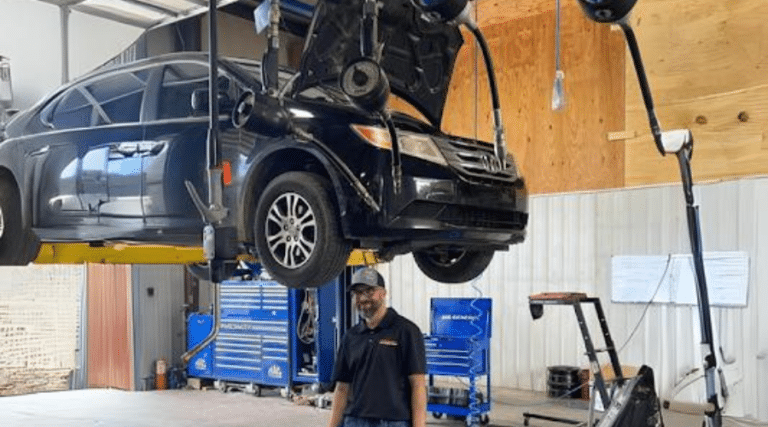All Categories
Featured
Your automobile is an essential part of your life, and taking excellent treatment of it makes sure that it serves you reliably for many years to come. While modern cars are made to be long lasting, ignoring proper upkeep can lead to unneeded failures and pricey repair work. Here's just how you can maintain your cars and truck running longer and in peak condition.
- Stick To Routine Maintenance. The structure of a lasting car is normal maintenance. Follow your producer's suggested maintenance schedule, which can normally be located in your vehicle's owner's manual. Normal tasks like oil adjustments, tire turnings, and brake checks stop wear and tear and maintain your auto carrying out ideally.
Neglecting oil adjustments is one of the quickest methods to harm your engine. Clean oil ensures appropriate lubrication and protects against overheating. Depending on your vehicle and driving practices, oil adjustments are normally needed every 3,000 to 5,000 miles or as specified by the producer.
- Examine and Renew Fluids. Your auto relies upon a number of liquids to run smoothly. These consist of engine oil, transmission liquid, coolant, brake liquid, and power guiding liquid. Low or dirty liquids can bring about engine overheating, slipping gears, and brake failure.
Make it a habit to check liquid levels frequently. If you discover a substantial decline in liquid levels, it may suggest a leakage that requires instant attention. Keeping fluids clean and at the best levels ensures your cars and truck runs successfully and protects against expensive repair services.
- Watch on Your Tires. Tire upkeep is important for both security and efficiency. Incorrectly inflated tires can reduce fuel effectiveness, trigger unequal wear, and boost the risk of blowouts. Inspect your tire pressure monthly and ensure it matches the manufacturer's recommendations.
Rotating your tires every 5,000 to 7,500 miles advertises even use and prolongs their lifespan. In addition, examine your tires for any signs of damages, such as cuts, bulges, or reduced tread depth, and change them when essential.
- Replace Worn Parts on schedule. Neglecting worn-out components can lead to larger troubles down the roadway. Falling short to replace a worn timing belt can result in engine failure. In a similar way, worn brake pads can harm blades, resulting in costly fixings.
Be proactive concerning changing components such as spark plugs, filters, and belts according to the manufacturer's standards. Using high-quality substitute parts makes sure better efficiency and longevity.
- Practice Gentle Driving. The way you drive significantly affects the life-span of your cars and truck. Aggressive driving habits, such as fast acceleration, abrupt stopping, and hard cornering, put extra anxiety on the engine, brakes, and tires.
Rather, take on smooth driving methods. Accelerate progressively, preserve a steady speed, and brake gently whenever feasible. This reduces damage on your vehicle's components and enhances gas effectiveness.

- Secure Your Car's Exterior. Maintaining your auto tidy isn't just about looks-- it has to do with avoiding damages. Dust, road salt, and crud can trigger corrosion and rust, especially in the undercarriage. Regular cleaning, particularly during winter season or after driving on salty roads, is crucial.
Waxing your automobile every few months supplies a protective layer against environmental damage. Furthermore, park your auto in a garage or use a vehicle cover to shield it from extreme climate and UV rays, which can fade the paint and damages the interior.
- Don't Disregard Warning Signs. Control panel warning lights are your auto's method of informing you something requires interest. Whether it's the check engine light, low oil pressure, or tire stress warning, dealing with these signals promptly can stop small problems from becoming major fixings.
If you notice unusual noises, resonances, or changes in your cars and truck's performance, do not overlook them. A professional technician can detect and take care of the trouble before it escalates.
- Store Your Cars And Truck Properly. If you're not utilizing your auto for an extended period, proper storage is vital. Keep your auto in a cool, dry area to safeguard it from weather condition damages. Make use of a battery tender to maintain the battery cost and add a fuel stabilizer to protect against the gas from weakening.

Beginning the automobile sometimes or taking it for a short drive can maintain all systems in working order and protect against parts from confiscating up.
Verdict: Consistency Is Trick. Maintaining your vehicle running much longer does not require complex measures-- just uniformity and interest to detail. Treat your automobile with treatment, and it will certainly compensate you with integrity, better performance, and years of reliable solution.
Latest Posts
Explore Your Financial Partner at WyHy – Key Advantages for Your Financial Success
The Power of Strategic Media Preparation with Complete Circle Advertising
Join Your Financial Partner at WyHy – Exclusive Benefits for Your Future
More
Latest Posts
Explore Your Financial Partner at WyHy – Key Advantages for Your Financial Success
The Power of Strategic Media Preparation with Complete Circle Advertising
Join Your Financial Partner at WyHy – Exclusive Benefits for Your Future
